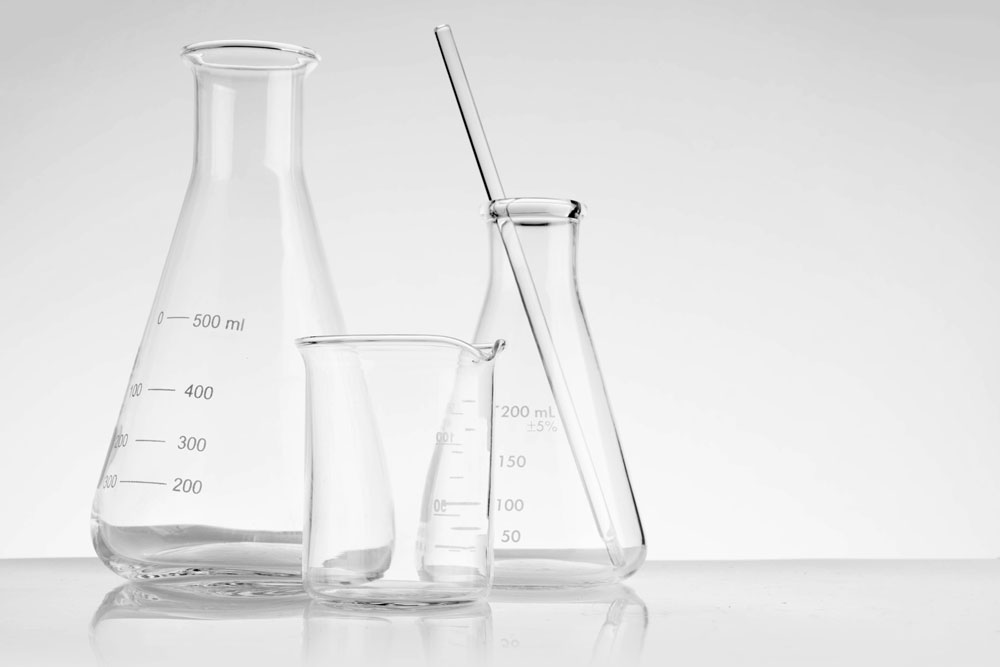How To Clean Glassware In A Laboratory
 CONTENTS
CONTENTS
- The importance of cleanliness in a laboratory
- How to clean glassware
- Why only specialist cleaners should clean glassware
- Contact us today
Clean glassware is essential in a laboratory setting to ensure accurate, reliable scientific results. However, glassware cleaning is a very complex process that requires specialist knowledge and equipment, and should always be left to professional laboratory cleaners.
At ICE Cleaning, we offer thorough and effective laboratory and pharmaceutical cleaning services. Our fully trained technicians can provide the full range of solutions, including cleaning and sterilising equipment and surfaces, and decontaminating your lab.
Keep reading to find out how to clean the glassware in your lab.
The importance of cleanliness in a laboratory
A clean laboratory is essential due to the safety concerns and the risk of results being skewed by cross-contamination from dust and chemicals.
Tidy laboratories are also proven to boost efficiency as employees are more motivated to work in an organised work environment, and they don’t have to waste time cleaning up.
Equipment that is left on workbenches in a disorganised way are prone to breaking if it is knocked or roll off, too. You can find out more about the hazards present in a laboratory in this blog.
Why your glassware must be kept clean
Glassware should be physically, chemically, and bacteriologically clean so tests and results are accurate. Dirty, contaminated glassware that contains the residue of unexpected chemicals can also lead to reactions which could put people’s health at risk.
If the glassware is used to measure liquids, any grease or contaminants will prevent the glass from becoming uniformly wetted and alter the volume of the liquid, too. It can distort or alter the meniscus in pipets and burets, as well, preventing you from getting the correct results.
How to clean glassware
It is recommended you clean laboratory glassware immediately after it is used to ensure any residue does not stick to it or it will be harder to remove later. Typically, the cleaning process includes:
- Emptying glassware, and washing and brushing it with detergents to remove grease and chemicals
- Soaking glassware in cleaning products to remove stubborn chemicals and help sterilise it
- Rewashing and rinsing repeatedly with tap water and distilled water to get rid of detergents and contaminants
However, this cleaning process will vary depending on the kind of glassware, what it was used for, and how dirty it is.
- A range of different-sized cleaning brushes are required to tackle dirt and contaminants in all kinds of glassware.
- Dangerous chemicals, like chromic acid, are required for cleaning very dirty or cloudy glassware, or glassware that contains coagulated organic matter.
- Harmful substances, like fuming sulphuric acid, are needed to remove grease.
- Glassware that contained blog clots, like petri dishes and culture media, must be sterilised before cleaning which will require specialist methods and equipment.
Laboratory cleaners will be fully trained in how to appropriately clean and sterilise each piece of glassware, and can give you peace of mind that it is safe to use.
Why only specialist cleaners should clean glassware
If you attempt to clean glassware yourself without any knowledge, equipment, and products, you could end up cleaning it incorrectly.
Most of the damage to glassware occurs during cleaning due to the use of abrasive products that affect the surface of the glass. Some hard utensils and worn brushes can also scratch and score the glass. Any marks and scratches may cause glassware to break during experiments.
Cleaning glassware can put your health at risk, as well, because of the dangerous chemicals that are used, like chromic acid, which is corrosive and carcinogenic.
You may have to remove one hazardous substance with another, too, so you will need to wear personal protective equipment (PPE) in the event of a chemical reaction.
There is a chance that you will not remove all soap, detergents, and other cleaning solutions before they are used, either. If you don’t rinse it repeatedly and in the correct way, it could lead to a reaction.
Instead, leave it to professional laboratory cleaners, like ICE Cleaning’s technicians, who have the training, PPE, and gear to clean your glassware safely and thoroughly.
Contact us today
Our technicians have provided their laboratory cleaning services for a range of bio pharma and medical suppliers.
Their strict training and knowledge of health and safety regulations enables them to provide a high quality clean without damaging your equipment. They are available nationwide, day and night, 365 days a year.
To book our laboratory cleaning services, give our team a call on 0208 066 0360 or send us an email at enquiries@icecleaning.co.uk.

Speak with me today,
I’m here to help
By asking you a few questions either via phone or email I can immediately provide a realistic estimation of the cost.
You’re in good company. We’ve cleaned for the following commercial clients… View all

Why choose us?
- Cater to a wide variety of cleaning situations
- Nationwide coverage, available 24/7
- Cater to commercial and domestic clients
- Free survey provided prior to quotation
- Emergency response team
- Offer a bespoke service designed to suit all your needs
- All technicians hold professional health and safety qualifications, including BICSc, IOSH, Dewpoint Professional & Safe Contractor
We’re fully accredited
We place best practise, professional expertise and health and safety at the core of our business. We’re fully compliant with all legal obligations. You can view a list of our accreditations below, or visit our Health & Safety page for more information.











-RGB-small.1707319151.jpg)




















